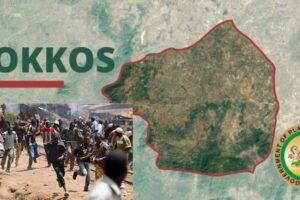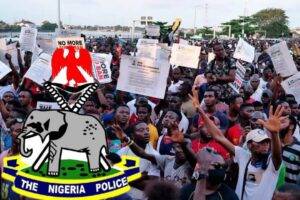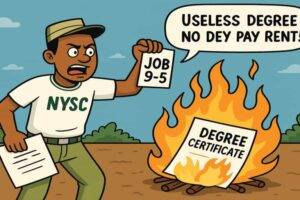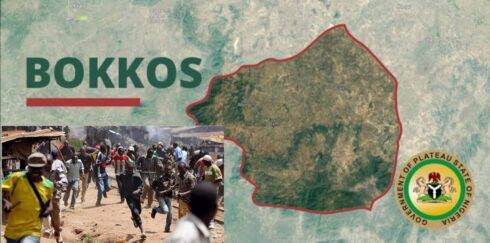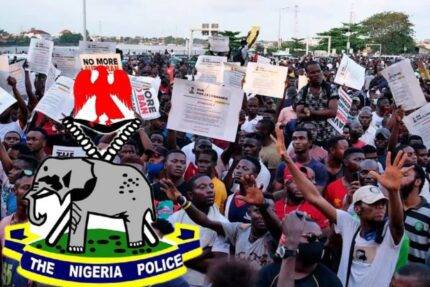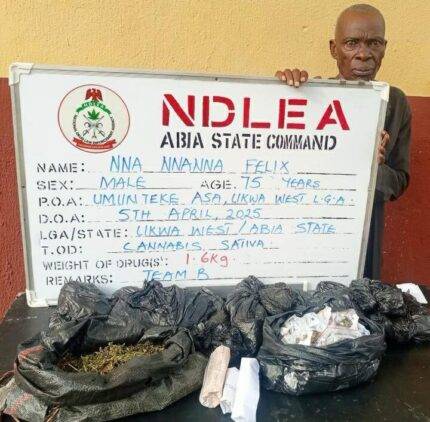Ibok-Ete Ibas, the Sole Administrator of Rivers State, has executed a sweeping political purge, suspending all political office holders and appointees across the state. The move, which many see as an unprecedented power play, has thrown the state into political turmoil, with stakeholders questioning the legality and motive behind the decision. According to Ibas, this action is necessary to “cleanse the government of incompetence, corruption, and political sabotage.”
Ibok-Ete Ibas insists that the Rivers State administration had become dysfunctional and compromised, claiming that many appointees were serving personal interests rather than the people. However, critics argue that this is nothing more than an authoritarian crackdown designed to consolidate power and eliminate opposition voices. The political earthquake triggered by this decision has left many wondering what comes next for the governance of Rivers State.
Ibok-Ete Ibas Justifies the Mass Suspensions Amid Backlash
Ibok-Ete Ibas has doubled down on his decision, stating that Rivers State was on the brink of total administrative collapse due to “unethical practices and political recklessness” among appointees. He claims that this radical move is the only way to restore governance integrity, promising that a full audit of government activities will determine who, if anyone, deserves reinstatement.
However, this explanation has done little to quell the firestorm of criticism. Many political observers see this as a dangerous precedent, arguing that a Sole Administrator should not have the unchecked power to dismantle an entire government structure. The timing of the decision—coming amid growing tensions within the state—has fueled speculation that this is not about governance, but about political domination and control.
Ibok-Ete Ibas Faces Rebellion from Affected Officials
Ibok-Ete Ibas has effectively alienated an entire class of politicians and appointees, many of whom have vowed to fight back against what they call an illegal coup. Several suspended officials have already threatened legal action, arguing that they were never given the chance to defend themselves before being abruptly removed. Some are alleging that this is part of a broader agenda to erase the influence of political rivals and install a more loyal structure.
In a dramatic turn, key figures within the Rivers State political establishment are reportedly mobilizing to challenge Ibas’s authority through both legal and political means. If this rebellion gains momentum, the state could be heading for a prolonged political showdown that may paralyze governance altogether. What started as a purge could spiral into a full-blown power struggle, with consequences that extend far beyond the current administration.
Ibok-Ete Ibas Triggers Constitutional Crisis with Sweeping Order
Ibok-Ete Ibas is walking a constitutional tightrope, as legal experts question whether his decision is within the boundaries of the law. While a Sole Administrator has broad emergency powers, many argue that removing every single political office holder without due process is an overreach that could face legal nullification. Already, senior legal practitioners have warned that affected officials may have strong grounds for a lawsuit.
Some analysts suggest that if the courts rule against Ibas, his authority could be significantly weakened, making it harder for him to govern effectively. On the other hand, if the legal system backs his decision, it could embolden him to take even more drastic actions. Either way, Rivers State is now in the midst of one of the most consequential constitutional crises in its history.
Ibok-Ete Ibas Faces Public Uproar Over Leadership Vacuum
Ibok-Ete Ibas has thrown Rivers State into uncertainty, as his mass suspensions have left a leadership vacuum in key sectors of governance. With commissioners, board members, and advisers all stripped of power overnight, critical government functions could grind to a halt. Citizens who rely on public services are now questioning how the state will continue to function in the absence of its administrative heads.
Public reaction has been deeply polarized. While some residents see Ibas’s move as a bold stand against political corruption, others worry that it will destabilize governance and slow down development projects. Protest groups are already mobilizing in key cities, demanding either the reinstatement of officials or a clearer roadmap for governance. The uncertainty is growing, and Ibas’s next steps will determine whether he emerges as a reformist or an autocrat.
Ibok-Ete Ibas Holds Rivers State’s Future in His Hands
Ibok-Ete Ibas has made his most aggressive move yet, but what comes next remains unclear. He has yet to announce who will replace the suspended officials, leaving many to speculate whether he plans to appoint new loyalists or hold off on governance appointments indefinitely. If replacements are announced soon, it could trigger further political infighting, as ousted officials attempt to reclaim their positions through the courts or political negotiations.
With tensions rising and opposition forces rallying, the coming weeks will be pivotal. If Ibas successfully asserts control, he will have redefined power dynamics in Rivers State. However, if resistance continues to grow, he could find himself fighting to hold onto power. The political fate of Rivers State is now in the hands of one man, and the consequences of his actions will shape the state for years to come.
Ibok-Ete Ibas has thrown Rivers State into uncharted territory, launching a political war that could either bring radical reform or lead to unprecedented instability. His decision to wipe out the entire political structure in one swift move has upended governance, setting the stage for a fierce battle over the future of the state. Whether this is an act of courageous leadership or reckless authoritarianism depends on what happens next.
With legal battles looming, public protests escalating, and opposition forces mobilizing, Rivers State now stands on the edge of a political reckoning. Ibok-Ete Ibas has made his move—now, the state, its leaders, and its people must decide how they will respond.
Table of Contents
Discover more from OGM News NG
Subscribe to get the latest posts sent to your email.




